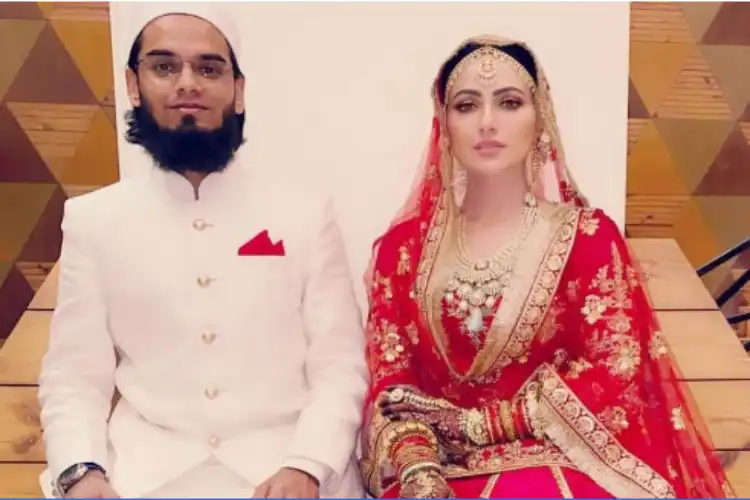
Eman Sakina
In Islam, there is no family without union or marriage and there is no marriage without rules and discipline. The family in Islam is a unit in which two independent persons unite and share life. The husband’s dignity is an integral part of his wife’s dignity. Accordingly, neither of them is better than the other. From the very outset, Islam has been a liberating religion that uplifted the status of women and gave them rights that were considered revolutionary 1400 years ago. Despite this founding spirit, Muslim practices today often oppress women and deny them the equality and human dignity granted in the Qur’an.! The family should be the first essential area in which women’s rights have to be secured.
The question that arises is that if Islam liberated women centuries ago, then why maltreatment of wives is not a rare occurrence among Muslims.Most likely, I suspect, it comes from misinterpretations of a Qur’anic verse and some hadith.
According to the Qur’an, the relationship between husband and wife should be one of love, mercy, and mutual understanding. Allah also commands men to treat their wives, “And consort with your wives in a goodly manner, for if you dislike something about them, it may be well that you dislike something which Allah might yet make a source of abundant good.”
Men are told to be generous and liberal in their treatment of women under all circumstances, especially when the relations between the two are not very amicable. Surah al-Baqarah refers to this in these words: “And do not forget liberality between yourselves”. Even in divorce, men are enjoined to be just and fair (Ma’ruf) to their wives.
When a level is granted to males or females based on their good deeds or piety, there is no discrimination. This is demonstrated by the following Qur’anic concepts: “Unto men a fortune from what they have earned and unto women a fortune from that which they have earned”.
“Whoever works righteously; man or woman, and has faith: verily to him/her will We give a new life, a life that is good and pure. And We will bestow on such their rewards, according to the best of their actions.” So when it comes to who has a greater advantage with Allah in terms of deeds, there is no level or degree given to the male or female over the other.
The Shari’ah has entrusted the responsibility of women’s material needs to men, who are held liable for meeting all the economic needs of the family, while women are held responsible for looking after the children, their nourishment, education, training, etc. This division of the work between husband and wife is based on their respective natural abilities.
It is wrong to conclude from this that as men (or women) have some “advantage” in one respect, they are therefore superior to the other. The Qur’an has beautifully described this relationship of the two sexes in these words: “And among His signs is that He created for you mates from among yourselves, that you may dwell in tranquillity with them, and He has put love and mercy between your (hearts).! Surely in that are signs for those who reflect.”
During the days of ignorance, i.e before the advent of Islam, a woman was deemed as a dejected part of the society. Female infanticide was in vogue. She was always denied the right to inherit the property of her parents. She was not given a right to give her consent or refusal on her marriage. She was looked at as a burden of society. At the rise of Islam, she was granted the right to live. She started inheriting. She was given the right to take Mehr from her husband during her marriage. Islam gave her empowerment. It means that obstacles are removed from her way to make her weak. It further means that she is given a choice, self-independence with self-reliance and to cope with the challenges she might face with a brave heart.
Islam gives high regard to a woman. It is envisaged in the phrase that ‘Paradise lies beneath the feet of a woman.’ Unlike many other scriptures, Islam does not make tag woman as a creation of evil or some shape of a devil. Islam does not put a man in a dominant position over a woman where the latter has no choice but to surrender to the dominance of the other. The notion that a man is superior to a woman is vastly misunderstood not only among non-Muslims but also in the majority of Muslim masses.
Islam considers a woman as an equal partner to her counterpart. There is no gender discrimination. Their rights and duties are demarcated according to their physical and psychological differences. As far as religious duties are concerned, she is as equal as a man. She is rather ‘privileged’ in the form of exemption from daily prayers and fasting during days of her menstrual intervals. She need not repeat or make up for the missed-out prayers later on. Both genders are entitled to equality before the law and courts of law. Justice is genderless.
